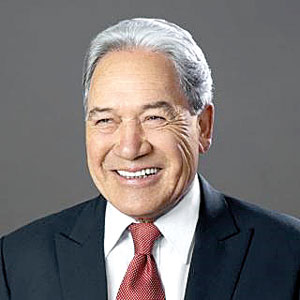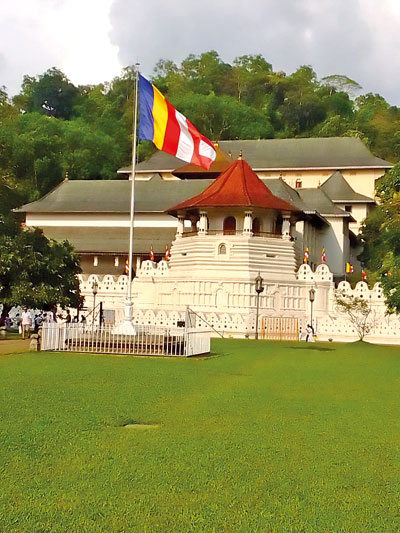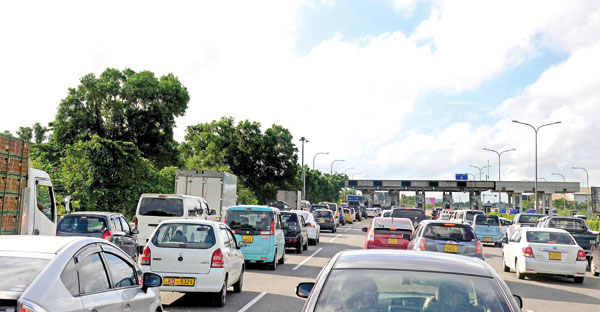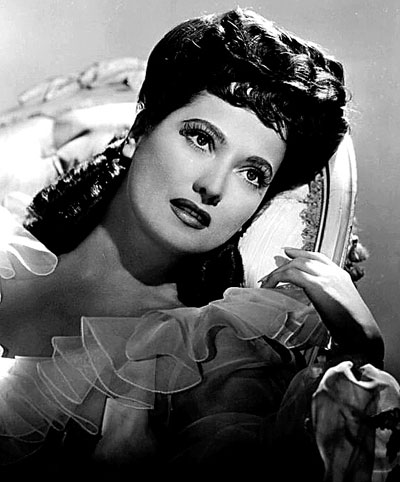Columns
Bananas, papayas, rugby and jobs: Lanka’s diplomatic goals with New Zealand and Poland
View(s):The Foreign Affairs Ministry will be kept busy in the coming days with two high-profile visits, one by New Zealand’s Deputy Prime Minister Winston Peters, who is also the country’s Foreign Minister, and Poland’s Foreign Minister Radosaw Sikorski.

New Zealand's Deputy Prime Minister Winston Peters

Poland's Foreign Minister Radosaw Sikorski
Mr. Peters will begin today his four-day Sri Lanka visit, during which he will engage in cementing ties, particularly in the agriculture sector. Foreign Minister Vijitha Herath said Sri Lanka would discuss exporting fruits such as bananas and papayas to New Zealand while also developing sporting ties by seeking assistance to develop Sri Lanka’s rugby.
The New Zealand Under-85kg team completed their maiden international tour in Sri Lanka recently, concluding their tour with a convincing 32-6 victory over Sri Lanka, with Minister Herath giving away the Sir Graham Henry Trophy to the winners.
Meanwhile, Polish Foreign Minister Sikorski will begin an official visit to the country on Wednesday with the government keen to seek job opportunities in Poland for Sri Lankans. On January 1, 2025, Poland assumed the presidency of the Council of the European Union and will lead its work for six months. Hence, the MFA in Colombo is also hoping the visit will help with Sri Lanka’s push to retain the GSP Plus preferential trade facility given by the EU.
SJB beset by multiple resignations tied to local council issues
The Samagi Jana Balawegaya (SJB), which is trying to gain some momentum by forming some of the local councils with the help of the Joint Opposition, has some setbacks in national-level politics.
It started off with Badulla District parliamentarian Chaminda Wijesiri deciding to step down from his position as the party’s Bandarawela electorate organiser on Friday.
Just less than 24 hours thereafter, three more resignations from the Matale district followed.
Former State Minister Wasantha Aluvihare, the Matale electorate organiser for SJB, along with his brother Ranjith Aluvihare, the Rattota organiser, and the Dambulla organiser Champika Wijeratne, submitted their resignations from the organiser positions.
The resignations have been sparked off, as some of the names recommended by them have not been reportedly included as nominees to the local councils.
Republic Day: Once a mighty milestone, now a mere non-event
May 22, Sri Lanka’s Republic Day, came and went, but the historic day on which the country severed ties with its last colonial ruler, Britain, remains largely forgotten. Not even in the ancient capital of Kandy, where then Prime Minister Sirimavo Bandaranaike unfurled the national flag near the Dalada Maligawa (Temple of the Sacred Tooth of the Buddha) to mark the day in 1972, was there any commemorative event.

The ground where Sri Lanka was declared a Republic in 1972 and the Octagon behind. Pic by L.B. Senaratne
A flagpost was constructed at the Maha Maluwa of the temple especially for the ceremony to mark the first Republic Day on May 22, 1972, but there is no sign today that she unfurled the flag at the spot. There is no plaque or sign to educate the public on the momentous day.
On the first Republic Day, there were divided opinions on whether Mrs Bandaranaike should address the nation from the Pattiruppuwa (The Octagon), a spot that links the present with Lanka’s historic past. The Diyawadana Nilame at the time, Heen Banda Udurawana, objected to the move. He was also a senator. With the new Republican Constitution, the bicameral legislature became a unicameral one, and the Senate was abolished. He said that there was no precedent for any king or head of state addressing the nation from this point. This was conveyed to Mrs. Bandaranaike through her security officer, and she agreed that there was ‘no precedence’ and instead addressed the nation from below the Octagon.
Five years later, though, in July of 1977, then Prime Minister J.R. Jayewardene, after a resounding electoral victory, walked up the stairs from the inner courtyard of the temple and addressed a massive cheering crowd from the Octagon.
Republic Day was done away with and renamed by the Jayewardene government as National Heroes Day, with national honours given on that day to people who have provided exceptional service to the nation. However, the day itself has been largely forgotten, let alone the leaders who took the steps to declare the country a Republic and break free from the last vestige of centuries-old shackles of colonial rule— nor National Heroes past and present.
Card payment delays expressway exit

Long queues seen at the toll gate after the introduction of card payments. Pic by Indika Handuwala
“Delivered,” proudly proclaimed Transport Minister Bimal Rathnayake, announcing that expressway users can now use cards to pay the toll fee at all exit/entry points from May 21.
While this is a welcome move, the card payments have added to long queues and more waiting time for commuters. At the Katunayake expressway, commuters and drivers exiting on Friday faced a surprising traffic jam at the toll booths, as card payment systems began working on Wednesday. Queues of eager card users and not-so-eager cash users were also seen in exits like Ja-Ela, as the long-awaited payment method seemed to cause longer waits. A motorist suggested that there should be separate counters for cash and card payments.
Unlawful detention and torture chambers: Debate on report fizzles out
There was a lot of noise by the government over holding a two-day parliamentary debate on ‘Report of the Commission of Inquiry into the Establishment and Maintenance of Places of Unlawful Detention and Torture Chambers’, but it seems after the day-long debate held on April 10, interest in the subject has waned, and continuing the debate for another day seems a drag.
The initial announcement was that the debate would continue for a second day in May, but with parliamentary sittings for the month concluded, no such debate was scheduled. A part of the reasons may have been opposition lawmakers using the debate to expose past atrocities of the JVP, with the debate opening a can of worms. The government has instead chosen to send the report to the Attorney General’s Department to pursue the matter.
Speaker appoints committee to probe Dayasiri’s conduct
Speaker Jagath Wickramartne took the rare step of appointing a three-member committee chaired by Deputy Chairperson of Committees Hemali Weerasekara and including Minister Vijitha Herath and SJB Parliamentarian and Chief Opposition Whip Gayantha Karunathilleka to investigate and report on a complaint submitted to the Speaker regarding the conduct of Parliamentarian Dayasiri Jayasekara on May 20, 2025.
The complaint in question was lodged by several government MPs alleging Mr. Jayasekara disrupted proceedings by deliberately misrepresenting Standing Orders of Parliament and for behaving aggressively and that he acted in a highly insulting and threatening manner.
The Standing Orders give enough authority to the Speaker to maintain order in the House. There is provision to name an MP and ask him or her to leave the Chamber or suspend an MP for a certain period of time as the Speaker may wish if they continuously fail to ignore the order from the Chair. Those options are also available to the Speaker to maintain the decorum in the House.
Merle Oberon, first Oscar nominee with Lankan ancestry

Merle Oberon
Merle Oberon, a Hollywood star of the 1930s and 1940s, who became the first Asian actress to be nominated for an Oscar for her role in “The Dark Angel”, has for long been identified as of Indian origin.
She was always described as an actress of South Asian origin—”born into poverty in Bombay, raised in Calcutta (now Kolkata), and arriving in Hollywood via England along with a new name and backstory.”
Her breakout in acting was her role in The Private Life of Henry VII (1933). She also acted in Wuthering Heights (1939) and That Uncertain Feeling (1941), A Song to Remember (1945), Berlin Express (1948) and Desiree (1954).
However, a recent New York Times article titled ‘A Hollywood Star with a Secret That Could Have Ended Her Career’ sheds light on a possible connection to Ceylon. The article says Merle’s mother, Constance Selby, was born in Sri Lanka. She was only 14 when she gave birth to Merle in 1911.
The rest of the story is not so pretty. Constance had been raped by her stepfather, so Charlotte Selby, Constance’s mother (Merle’s grandmother), raised Merle as her own. Merle grew up believing that Charlotte (her grandmother) was her mother and that Constance (her mother) was her sister. To cover her origins, she had claimed she was born in Tasmania, Australia. When the Lord Mayor of Hobart, capital of Tasmania, invited her as a guest, she accepted the invitation and went ahead with the visit but denied she was born in the state.
Merle was married several times and she died in 1979 at the age of 68 in Malibu, California.
Buying or selling electronics has never been easier with the help of Hitad.lk! We, at Hitad.lk, hear your needs and endeavour to provide you with the perfect listings of electronics; because we have listings for nearly anything! Search for your favourite electronic items for sale on Hitad.lk today!


Leave a Reply
Post Comment